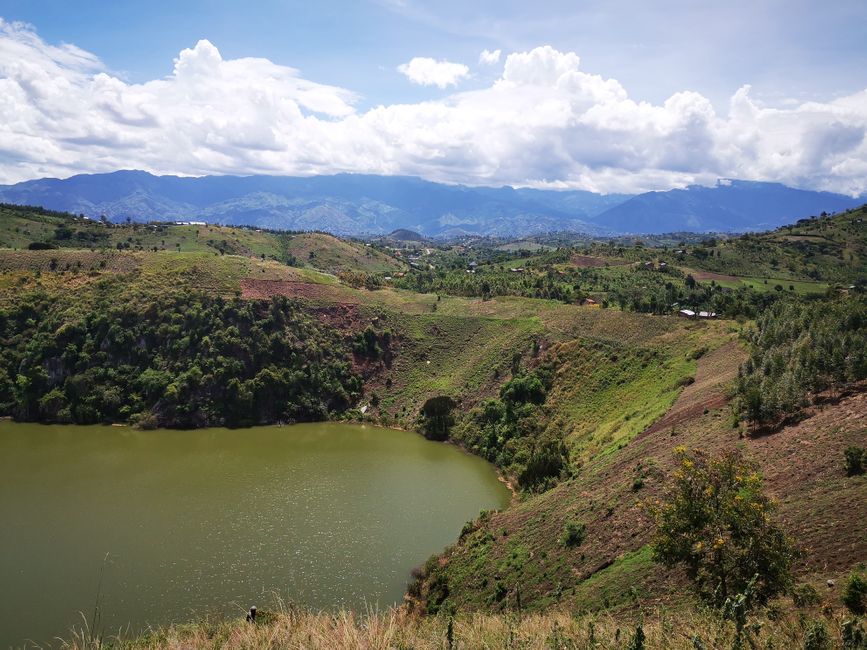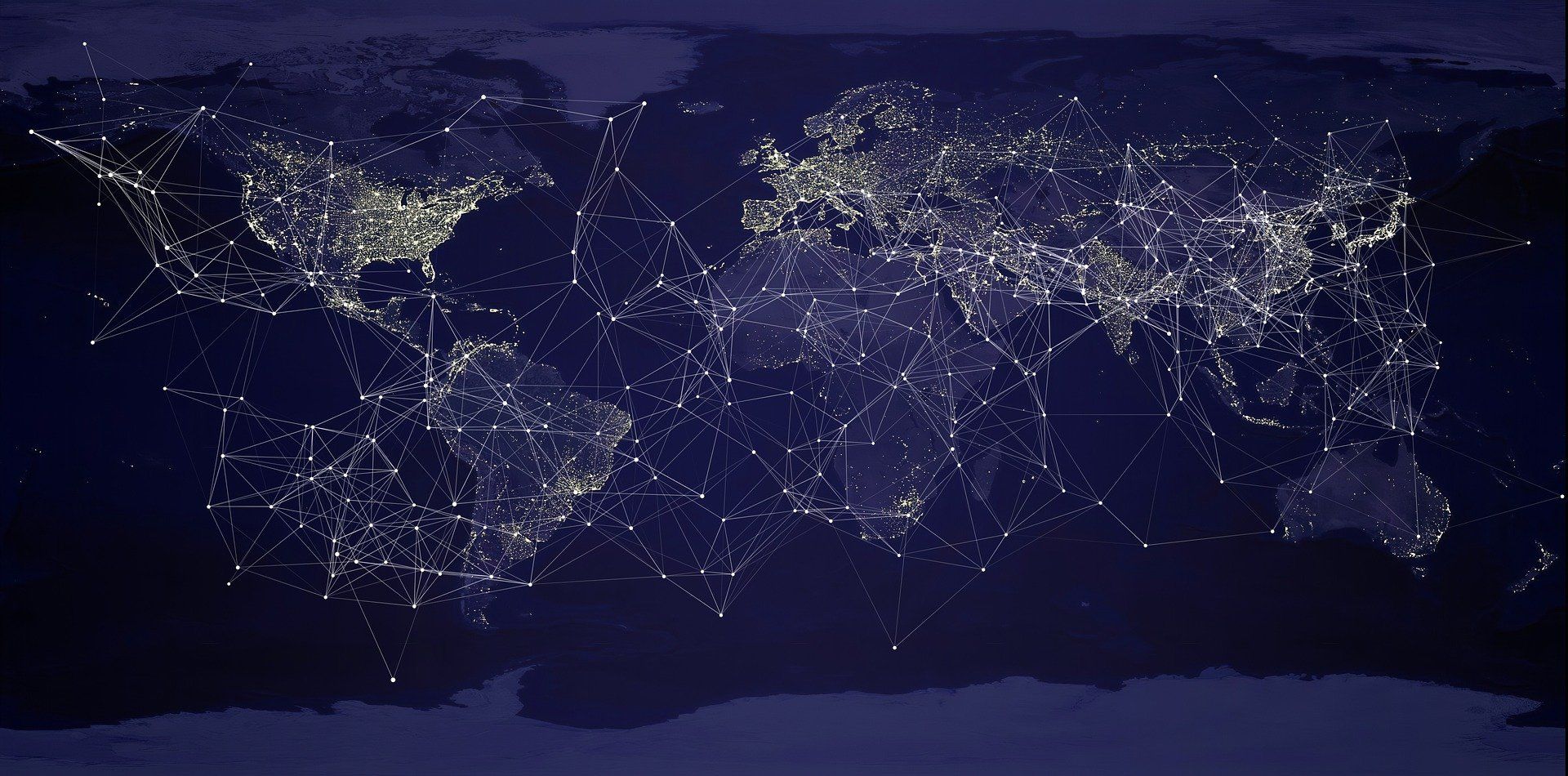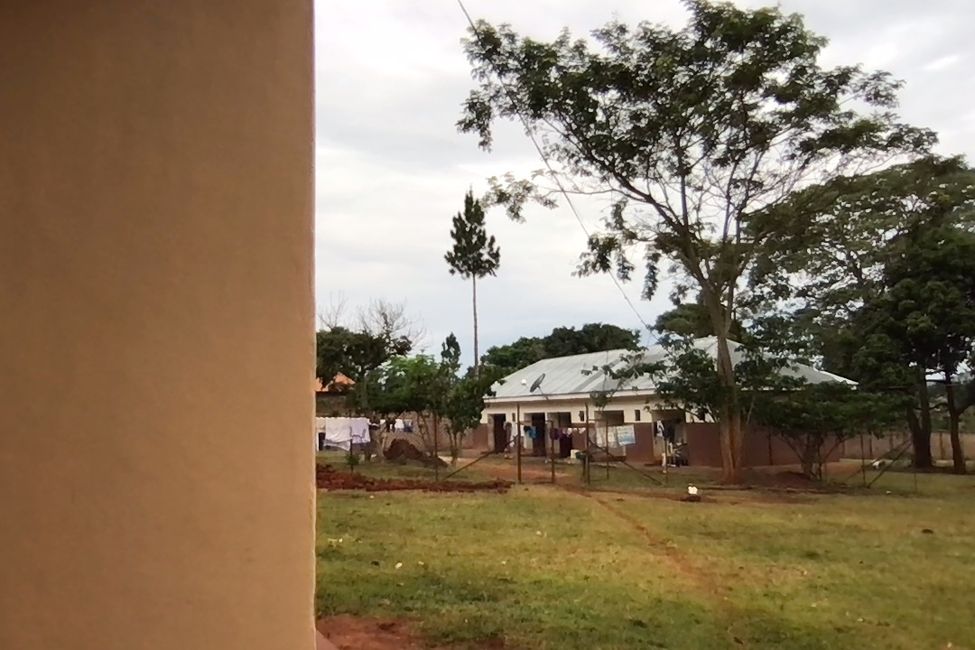The Journey
Cyhoeddwyd: 17.01.2022
Tanysgrifio i'r Cylchlythyr
Zurich
The woman at the passport control looks at me grumpily, I have to fill out my passport... Until now, I had assumed that when you receive a passport from the passport office, at least the essences would be included. So I look at her with eyes as big as plates, already stressed out. "Signature!" After that, I briefly discussed with the woman next to me whether Entebbe is now in Malaysia or Indonesia, and she shrugged her shoulders when I mentioned "Uganda". Then I was allowed to continue my journey. To Gate E42. Because to get to the E-Gates, you have to dive deep into the bowels of Zurich Airport and hope to be spit out at the right place. The flight goes well so far, the flight attendants wear surgical gowns, but once you get used to this sight, you can relax.
Doha
Qatar is so small that you would think that with the airport, half of the small peninsula would already be filled. Jewelry, golden brand emblems and food in packages that would challenge a family of twelve can be seen everywhere. The gates on the upper floors look relatively organized and are equipped with the typical moving walkways that you know and love from airports. But if you go downstairs, where we should be led to the plane, it looks more like the enclosure is just not big enough for the number of animals after they have been gathered. After a hair-raising ride in an airport bus, which we only survived thanks to the very fast braking reflex of a luggage cart, we find ourselves in familiar surroundings again, with Qatar Airways. Unfortunately, wanting to sleep is completely utopian, so I sit there, with pain in every part of my body involved in the sitting process, and let myself be transported. If someone were to accuse me of describing people as animals at the beginning, then the observation of how the airplane looked after landing could probably have calmed the spirits a bit. Trash was left everywhere, screens still showed running movies, gloves, masks, headphones, food, packaging, everything was still lying there exactly the same.
Entebbe
Entebbe Airport gives a little impression of a building that was built without knowing its real purpose yet. Suddenly, all passengers found themselves in a large room, where at the end two people were checking everything possible. Interestingly, despite this, four lines formed, in the hope that one would be given preferential treatment... After that was over, the PCR test followed. This took place in a tent. Now imagine setting up a tent in a place that is nearly 30 degrees warm with relatively high humidity due to the adjacent lake. Now imagine putting a hundred more people into this pressure cooker. The situation was very pleasant. The men in military uniforms, who wore machine guns as necklaces, also helped to calm things down. During the testing in the small tent within the existing tent... imagine it... the tester's software crashed. After successfully getting a stick pushed into my brain, it was time to apply for the visa. The woman was not unfriendly, because to be that, she would have had to interact with me... She calmly talked to her pregnant friend, skillfully ignoring my question about the passport photo. Anyway, I had a visa and my suitcase.
Outside the airport, Regina was already waiting for us, and for a moment we were unsure if we had approached the right people. But it seemed to be correct. Past even more figures with machine guns, we searched for our way to the car. A jeep that could just about fit our suitcases and backpacks. After leaving the airport area, the realization that it was a very different country really sank in. Along the road, you can see shops selling clothes, repairing motorcycles, making garden gates and coffins. There are people everywhere, and motorcycles with sometimes four people on them drive with the belief in the braking ability of car drivers.
Kampala
It is hard to differentiate between Entebbe and Kampala, the transition is seamless. At one point Regina says that we are now in the suburbs, but these outskirts of the two cities merge quite smoothly. In Kampala, we park because Regina just wants to quickly get some school books. I tell her that all my money and documents are in my suitcase, how safe that would be to leave it in the car. The other two had their valuables on them sensibly, I had everything distributed throughout the suitcase. So I dragged a suitcase through a crowded city with potholes, which luckily had a market going on today. Everyone called you their friend, and we stuck out like colorful dogs. When we asked if we could still exchange money somewhere, it was followed by a chase through the city in search of an open bank. Slowly but surely, my strength waned, and I fell flat on the pavement because I had overlooked an unevenness. After that, I was reminded of every little stone that crossed our path. When we finally exchanged money, it was time for lunch. So we continued walking through the city, which was so full of colors, images, smells, and impressions that all my senses suffered from information overload. In pharmacies, instead of corona self-tests, you can get HIV self-tests. The restaurant is a large room that you enter through stairs leading to a hole in a terrace. Motivational posters hang on the wall, one of them depicting a frog strangling a stork that wants to swallow it, with the slogan "Never give up!" It's interesting how sometimes in such unfamiliar places you are reminded of familiar things. To go to the toilet, you had to go down two flights of stairs and then onto the street, turn right, and there was a hole in the ground behind a door. I had dollar coins to pay, but the man at the toilet didn't want them. He looked at me and said, I must have a lot of other money. I denied it, but he wouldn't let me go. Then a second man joined in, and I didn't have a very good feeling anymore. I said that was all I had and walked away, and the second man followed me. I was then quite relieved to be sitting back in the restaurant.
Kyankwanzi
The journey to the school took about three more hours. We rushed over the streets at an impressive speed of about 110 km/h. The roads are actually one lane, but they are so wide that many interpret them as two lanes. Basically, the rule is, whoever brakes loses. Overtaking attempts are also made against oncoming traffic, if it fits, it's okay, otherwise one of them will already brake. Everything becomes more rural, the houses are made of red clay or bricks that are shaped and fired at the roadside. Children play everywhere, and fruits are sold by the roadside. The nearby village is called Kiboga, which we also visit later in the evening. The grounds of the secondary school are spacious and equipped with animals such as cows, goats, pigs, and dogs. We live in a kind of apartment, with Celine and me having two adjacent rooms and Philipp living in a room a few buildings down. We put down the suitcases and are supposed to take a trip to Kiboga to get SIM cards. But before that, we are allowed to taste fruits directly from the trees there. Passion fruit and jackfruit. Both incredibly delicious. The leftovers go to the cows and goats, which never take their eyes off us. The village does not have paved roads, but paths made of packed clay. In a room barely larger than a toilet cabin, we order SIM cards. The process takes more than two hours, and then there is some food at home. The shower is a water heater from which you pour cold water over yourself. Behind it is the toilet, also a hole, and to flush, you also use the water heater. After showering, it's finally time to go to bed. After about 36 hours of being awake, I fall asleep as quickly as never before.
Tanysgrifio i'r Cylchlythyr
Ateb

Adroddiadau teithio Uganda


